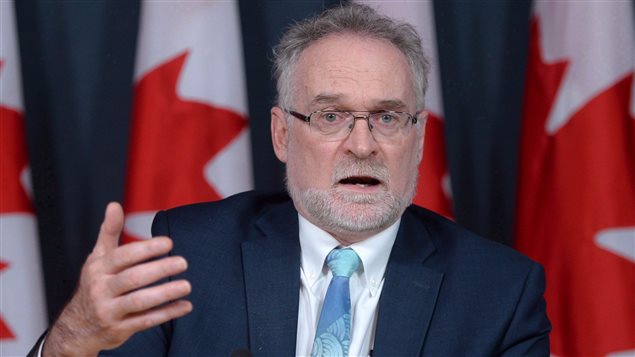Canada’s federal spending watchdog has delivered a blunt and blistering critique of government bureaucracies and urged the “still-new” Parliament to learn from past mistakes “that show up in audit after audit, year after year, and sometimes persist for decades.”
“These problems include departments and agencies struggling to work outside their silos, either to learn from what is happening within their organizations, or more broadly, to learn from what their external counterparts are doing,” Auditor General of Canada Michael Ferguson said in his preamble message to the fall report.
“And what about programs that are managed to accommodate the people running them rather than the people receiving the services? What about programs in which the focus is on measuring what civil servants are doing rather than how well Canadians are being served?”
Ferguson tabled a series of seven reports today that found alarming gaps in government programs, from motor vehicle safety oversight that could put lives at risk to a chronically failed First Nations claims process he condemned as “beyond unacceptable.”
Focus on Canadians, not bureaucratic process
He urged the Parliament to adopt a radically new approach to governing to improve and speed up services for Canadians.
“In an age of instant communications, Canadians expect quick results, while governments are often stuck using old, slow approaches that fail to meet expectations,” Ferguson said.
He gave the example of more than 170,000 objections from individual and corporate tax filers that are currently awaiting processing by the Canada Revenue Agency. It can take from a few months to several years to bring those files to a close, Ferguson said.
Déjà vu
“In just five years, with some 100 performance audits and special examinations behind me since I began my mandate, the results of some audits seem to be—in the immortal words of Yogi Berra—‘déjà vu all over again,’” Ferguson said.
One of the first audit reports that was presented by him for tabling in 2012 focused on the process to replace Canada’s fighter jets, Ferguson said. It found that the federal department of National Defence likely underestimated the full life-cycle costs of the F-35 fighter jets.
“In our reports just presented to Parliament, the same theme appears in the maintenance of military equipment,” Ferguson said.
Once again, National Defence bureaucrats did not estimate the total maintenance cost of equipment over its entire lifetime, Ferguson said.
“The Department’s original budget for in-depth maintenance was $35 million per submarine, when the most recent maintenance cost almost 10 times that amount, or more than $320 million,” Ferguson wrote.
Potential of Indigenous Canadians ‘squandered’
But Ferguson reserved his harshest words for the government’s decades-long failure to effectively serve Canada’s Indigenous peoples, calling the situation “beyond unacceptable” and failure of leadership.
“By leadership, I include federal, provincial, territorial, and First Nations levels—with most of the responsibility falling on the federal government, though all levels have some responsibility,” Ferguson wrote.
“Until a problem-solving mindset is brought to these issues to develop solutions built around people instead of defaulting to litigation, arguments about money, and process roadblocks, this country will continue to squander the potential and lives of much of its Indigenous population.”
With files from CBC News







For reasons beyond our control, and for an undetermined period of time, our comment section is now closed. However, our social networks remain open to your contributions.